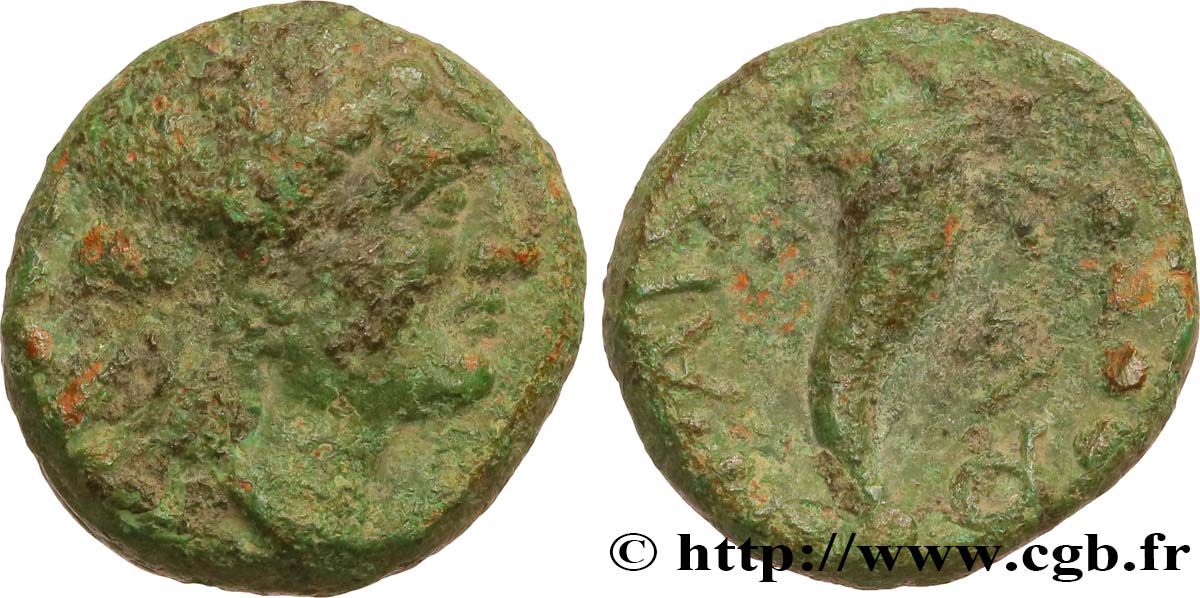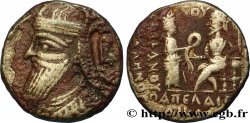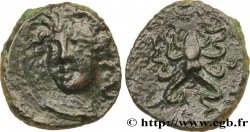E-auction 419-330676 - bgr_660502 - SICILE - AITNA (ÆTNA) Hexas
You must signin and be an approved bidder to bid, LOGIN TO BID. Accounts are subject to approval and the approval process takes place within 48 hours. Do not wait until the day a sale closes to register. Clicking on « bid » constitutes acceptance of the terms of use of cgb.fr private e-auctions.
Bids must be placed in whole Euro amounts only. The sale will start closing at the time stated on the item description; any bids received at the site after the closing time will not be executed. Transmission times may vary and bids could be rejected if you wait until the last second. For further information ckeck the E-auctions F.A.Q.
NO BUYER'S FEE.
NO BUYER'S FEE.
| Estimate : | 50 € |
| Price : | 26 € |
| Maximum bid : | 27 € |
| End of the sale : | 26 April 2021 14:03:00 |
| bidders : | 7 bidders |
Type : Hexas
Date: c. 210-150 AC.
Mint name / Town : Aitna, Sicile
Metal : copper
Diameter : 15 mm
Orientation dies : 3 h.
Weight : 3,70 g.
Rarity : R2
Coments on the condition:
Flan court, centré. Usure importante mais régulière. Patine verte
Catalogue references :
Obverse
Obverse legend : ANÉPIGRAPHE.
Obverse description : Tête de Perséphone, les cheveux longs à droite couronnée d’épis.
Reverse
Reverse description : Cornucopia (corne d’abondance) posée à droite avec sa bandelette à gauche ; dans le champ à gauche, deux globules.
Reverse legend : AITNAI/WN
Reverse translation : (Aitna).
Commentary
Ce monnayage débute après la conquête totale de la Sicile par les Romains. Le monnayage est stylisé et stéréotypé.
This coinage began after the complete conquest of Sicily by the Romans. The coinage is stylized and stereotyped.
This coinage began after the complete conquest of Sicily by the Romans. The coinage is stylized and stereotyped.








 Report a mistake
Report a mistake Print the page
Print the page Share my selection
Share my selection Ask a question
Ask a question Consign / sell
Consign / sell










